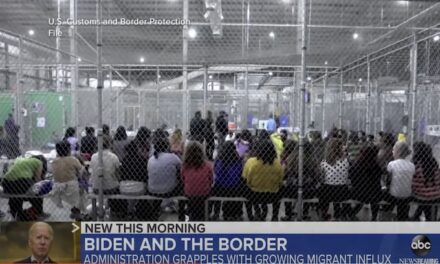Illegal immigration costs American taxpayers $116 billion annually, according to a new report published by the Washington, D.C.-based Federation for American Immigration Reform (FAIR). Illegal aliens’ presence in the United States has long been debated. Advocates claim that many do jobs Americans won’t and that the services they perform grow the economy.
Indeed, a sizable body of evidence indicates that all immigration, legal and illegal, grows the overall GDP. But more important, high, sustained immigration levels have a dramatically negative effect on per capita GDP, one reason why income inequality has increased nationwide. Immigration adds more poor to the population.
Titled “The Fiscal Burden of Illegal Immigration on United States Taxpayers,” the FAIR study’s introduction states that the federal government’s failed efforts to secure the nation’s borders have created a severely negative impact on the American taxpayers at the local, state and national levels: “Illegal aliens are net consumers of taxpayer-funded services and the limited taxes paid by some segments of the illegal alien population are, in no way, significant enough to offset the growing financial burdens imposed on U.S. taxpayers by massive numbers of uninvited guests.”
FAIR’s report concluded that, to cover the aggregate $134.9 billion in costs that 12.5 million illegal aliens and their 4.2 million citizen children generate, taxpayers get stuck with a net $116 billion tab, a tax burden of about $8,075 per illegal alien family member. Illegal immigrants pay about $19 billion in taxes.
The study includes a state-by-state breakdown, and shows that California is the hardest hit with a $23 billion expense. States’ outlays for education, $44 billion, is the major fiscal drain.
Coincidentally, the FAIR report came out at a time when Congress is, believe it or not, debating four major amnesty bills. One amnesty is for the 800,000 deferred action for childhood arrivals (DACAs); the second is the DREAM Act that would legalize millions; the third, the Succeed Act, also hopes to legalize millions, and finally, Republican House Judiciary Committee Chair Bob Goodlatte, of all people, introduced his Industrial Hemp Farming Act, an agricultural amnesty. The four bills would provide, among other benefits, Social Security numbers and employment authorization documents, valid for life.
The bills come at a time when the nation has a $20 trillion deficit, crumbling infrastructure, widespread urban poverty and crime, and myriad other pressing social problems. Yet Congress is presenting the amnesty bills as urgent, must-pass legislation even though they’re hurtful to Americans, deeply unpopular in local districts, and over the years, have been repeatedly rejected by voters.
Amnesty bills are unpopular for the simplest reason. History has conclusively proven that amnesty begets more illegal immigration. Legislators promised that the 1986 Immigration Reform and Control Act would mark illegal immigration’s end — that was 12.5 million illegal immigrants ago.
Cynically, none of the four amnesty bills working their way through Congress have E-Verify provisions that would protect American workers, and discourage costly illegal immigration. While Congress pontificates endlessly about wanting to help struggling Americans, behind closed doors they’re plotting to displace citizens from their jobs, and as the FAIR report demonstrates, add significantly to their tax liability.
The four amnesties represent the nadir in swamp politics.
—–
Joe Guzzardi is a Californians for Population Stabilization Senior Writing Fellow. Contact him at [email protected] and on Twitter @joeguzzardi19.



















Recent Comments